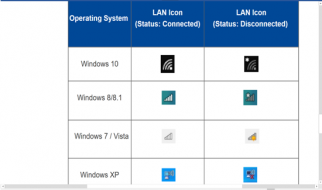This is how you could prepare for a monetary disaster
 Photo by James Pond on Unsplash
Photo by James Pond on Unsplash
Throughout the ages in times of crisis, out-of-control governments, states, and empires have seized from their citizens what they perceived to be real money.
In recent history, gold has allowed citizens to protect their purchasing power from fiat currency depreciation and escape state-imposed financial repression. Though, it has been the prime asset that authorities confiscate when monetary systems fail.
In 1933, former U.S President, Franklin D. Roosevelt, enacted Executive Order 6102 banning American citizens from hoarding large amounts of gold. In 1959, the Australian Government signed the Banking Act into law allowing Aussie authorities to seize citizen?s precious metals. And in 1966, the British government blocked gold imports and banned Brits from owning more than four precious metal coins. These are just a few of the many wealth confiscation episodes over the past century.
Past governments approved these actions without their citizen?s consent to achieve ?order? and remove ?chaos?, but this is code-speak for theft via temporary authoritarianism. So when the U.S dollar inevitably collapses, if you think this 21st-century U.S administration won?t pursue your precious metals stash, you?ll be in for a surprise when the debtor-in-chief?s ?sound-money hit squad? knocks down your door, empties your safe, and gives you nothing in return.
Unfortunately, protecting your purchasing power from a fiat currency system isn?t as straightforward as buying gold, silver, and Bitcoin, and storing it down at your local JPMorgan branch. When it matters, the state will seize your property and will remove your rights to restore ? what they believe to be ? monetary order, whether that?s via a government-created cryptocurrency backed by gold or a new fiat currency backed by IMF (International Monetary Fund) SDRs (Special Drawing Rights): ?the international reserve currency?.
?You?ll be in for a surprise when the debtor-in-chief?s ?sound money hit squad? knocks down your door, empties your safe, and gives you nothing in return.?
For the elites to create a new monetary paradigm, they will use any excuse to try to steal your hard-earned wealth when things go wrong. Italian dictator, Benito Mussolini, encouraged citizens to hand over their gold in exchange for steel wristbands bearing the inscription ?Gold for the Fatherland?, the Soviet Union banned large private ownership of gold altogether, and Saddam Hussein, the deceased Iraqi dictator, cleaned out citizen?s gold, jewelry, and other valuables while holding them at gunpoint ? they traded their assets for their lives.
Despite past events, elites will tell you gold is nothing more than a barbarous relic, a useless lump of shiny rock with no purpose in modern-day society while continuing to amass vast quantities of gold bullion. Since 2000, Russia has increased its reserves by 680%, China has increased its reserves by 393%, and U.S reserves remain equal despite a 100% debt-backed currency. When the time comes they will show their true feelings towards gold and will come for yours ? if required.
Though, there are ways to get around a government that imposes tyrannical policies in desperate times. But you?ll have to game the system, discard patriotism, and think outside the box.
Removing all your assets from entities connected to the banking system is the first step. With ?bail-in? legislation passed and enacted in several countries ? the G20 bank bail-in solution was signed into supranational law in late 2014 ? if you store your gold within your bank and your bank goes bust, they have the power to use your gold ? and even your savings ? to bail out their mistakes.
You might think to store gold in your home safe, but like anything in investing, diversification is key. Storing gold in a private vault is important, but so is the location: You must store it offshore, outside your government?s jurisdiction, otherwise they will hunt down your stash, like in 1907, 1959, and 1966. Though you don?t need a high net worth to store your assets in other countries. Companies like Goldmoney allow their clients with small account balances to buy and store gold in various countries from Singapore to Switzerland ? countries with governments that have never seized precious metals.
Though, if you?re desperate to keep some gold at home, stick to jewelry. You don?t need to hide your gold bracelets, earrings, and other wearables because the U.S government doesn?t recognize them as financial assets. As precious metals analyst, Jeff Clark, says, ?History has shown, in the developed world, gold confiscations have targeted monetary metals, like coins and bars. Jewelry was spared. Only in oppressive nations, ruled by dictators, was it a target. In other words, residents of developed nations that own gold jewelry have an asset that remains [less] appealing ? to grab.?
?Your primary aim is to preserve your capital avoiding wealth destruction and confiscation.?
Another way to preserve your purchasing power is to use asset classes that most people shun as investments, ones you can touch, feel, and treasure, but also profit from over your lifetime. They have real uses, they tend to hold their value, and, most importantly, governments don?t need them to restore order during monetary Armageddon. ?To bail out our beloved country, we?re seizing all vintage guitars, fine wine, and luxury watches,? is something you?ll never hear on the six o’clock news ? hopefully.
In 1957, you could have bought a Rolex submariner watch for $1,265 ? adjusted for inflation ? compared to today?s price of $7,250, not only preserving both your wealth and purchasing power but netting yourself a tidy profit. Today, with that money, you could walk into any watch shop and purchase 11 of them without breaking a sweat.
Vintage guitars sell for 1000% more than their 1960s price. If you choose the right guitar, it could become part of your retirement fund. When the world goes into a prolonged recession or depression, people lose confidence in their paper wealth and shift into tangible assets, hence, guitar prices appreciate significantly. The VGP50 price index shows above-average price rises during the 2008 financial crisis.
But the most underrated and most overlooked asset of all time is fine wine. Over the past decade, the Burgundy 150 index, the broadest price measure of fine wine, has outperformed the S&P500 index by roughly 300% with an annual 12.7% growth rate. Prices vary based on rarity, exclusivity, and desirability. A bottle of Domaine Romane?e Conti will set you back roughly $50,000 while a bottle of Fontaine Gagnard will cost you around $1,000. Though the fine wine market is difficult to enter with limited learning resources online ? and a degree of pretentiousness ? going down this rabbit hole has reaped big rewards so far.
Then, there are the ?protected? asset classes: stocks, bonds, and real estate. As we have a financialized economy, not a real economy, higher prices in speculative assets maintain the stability of a broken system, so the last step the government will take is to confiscate assets that paint over American?s fake economy. They want you to keep buying these ? and in bulk!
But creating a diversified portfolio of physical assets, which remain outside the protected class and have proven the test of time, will help you financially and will give you future peace of mind. You?re spoilt for choice with old-timers like precious metals, and new kids on the block like Bitcoin.
The hard part, of course, is trying to predict which assets will not only hold their value but appreciate over time, though with a few hours of research, your chances will rise dramatically. Again, it?s a bonus if an asset yields a profit. Your primary aim is to preserve your capital, avoiding wealth destruction and confiscation.
The rise of anti-fiat sentiment worldwide has caused a surge in alternate versions of wealth preservation, and with central banks and governments continuing their money printing onslaught, protecting your purchasing power through ?radical? means will likely gain popularity in the next decade.
The mighty U.S dollar could survive for many years to come, and by then, the world will be a very different place: a new government, a new culture, a new society, a new way of life. But whatever the future holds, the elite?s monetary agenda remains the same. Though in the next economic collapse, if you have gone the extra mile to safeguard your real wealth, you won?t care whether the state starts seizing assets by any means necessary.
Your real wealth will be undetectable in plain sight.
For more analysis and ideas, subscribe to my mailing list.
- Not investment advice. For educational purposes only.
- Update: Dates corrected on Roosevelt?s order.


